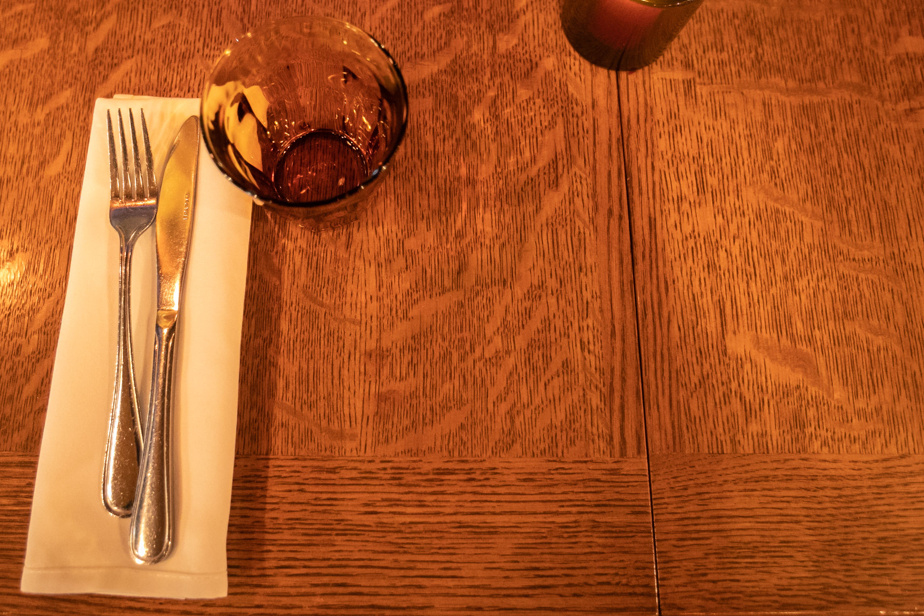Can the imposition of a fine be popular? When it comes to punishing customers who don’t honor their reservations, restaurateurs have allies: 69% of Quebecers support the idea of imposing a “modest” penalty, which they estimate on average at $17 per customer, taken from the credit card of those who leave their table empty… without warning.
This data, revealed in a survey conducted in September by Léger, gives significant support to restaurateurs who want to take action to stop the phenomenon. Customers who pose rabbits are expensive. Commonly known as “no show,” the scourge causes on average annual losses of nearly $50,000 for establishments that have to deal with it, according to a survey conducted at the beginning of the year by the Association Restauration Québec (ARQ).
“Since the return to normal in 2022, and still to this day, we have received calls from members who tell us that this problem has not been resolved, that it has gotten worse,” says its vice-president. for public affairs, Martin Vézina.
Faced with the scale of the phenomenon, the association has had several meetings over the last seven months with the Consumer Protection Office (OPC) in order to give restaurateurs free rein to impose a co-payment on delinquent customers. In this way, we would therefore take a sum of money from the credit cards of those who are absent subscribers. Currently, according to the law, restaurateurs cannot use this deterrent.
However, by Mr. Vézina’s own admission, the waiting time for the analysis of the file is starting to be “a little long”. We therefore decided to survey the population, in September, in order to prove that there was “social acceptability” to the idea of imposing a fine on “bad” customers.
According to the survey conducted on behalf of the ARQ, 69% support this measure, compared to 25% who disagree. A minority of 6% of respondents did not take a position on the question.
“We wanted to document the file further,” says Mr. Vézina. At the Consumer Protection Office, we may think that this is an anti-consumer measure, but when we see the support we receive from the population, we see that people understand the real reason why we are asking for this. . It’s to change undesirable customer behavior and not necessarily get rich with the penalties. »
“People are really behind us on this point,” adds Hugues Philippin, owner of the restaurant Chic then!. They all think it makes no sense. They themselves are frustrated with it because it’s a bit like shoplifting. It raises prices for everyone, illustrates the Quebec restaurateur. It’s the same principle. We have to get our act together one way or another [by increasing the prices on the menu]. »
According to him, imposing a fine would perhaps also prevent consumers from booking at four different places for the same evening, thus creating a bottleneck in several restaurants and leading to the frustration of many other customers who never manage to find a table on Saturday evening since the establishments are full.
Although he says he understands the complexity that changes in the law can represent, Mr. Filipino also finds that the file is starting to drag on.
However, the Department of Justice does not appear to be about to make an announcement on the subject. “We can obviously understand the frustration of restaurateurs and we can assure you that we are in solution mode,” responded by email Élisabeth Gosselin, director of communications in the office of the Minister of Justice, Simon Jolin-Barrette.
“At our request, the Consumer Protection Office (OPC) met with the Association Restauration Québec (ARQ) to discuss this phenomenon and we are currently analyzing possible solutions. We invite citizens to take the time to cancel their reservation when they do not intend to show up. It’s the least we can do and it’s a matter of respect for our Quebec entrepreneurs. We have nothing to announce in this matter at the moment,” she added.
In a laconic response, OPC spokesperson Charles Tanguay simply stated that the organization was studying “different scenarios aimed at regulating “no-shows” in restaurants. For the moment, no timetable has been set for reporting the results of these analyzes to the minister.”
Meanwhile, although the method is illegal, some restaurateurs have already started cracking down. “Indeed, there are operators who are currently doing it, even if it is not legal,” recognizes Martin Vézina. What we hear from those who do it is that it has allowed them to stop the phenomenon. So, this proves that our proposal is not far-fetched. »
